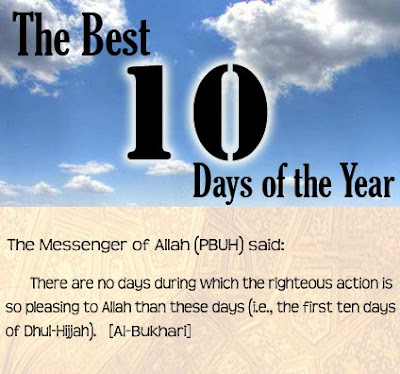It is the time of the year again when we see millions of people from every corner of the world gathering in Makkah for Haj, which is the largest annual religious gathering that humanity knows. It is not just the number of people, but also the diversity that is stunning. Indeed, the heart of every believer soars with joy and the eyes well up when they watch the live transmissions being aired from the holy sites and every single one of them wishes that he/she was one of the blessed ones performing Haj.
It all started when Allah commanded Prophet Ibrahim (peace be upon him) to build His House, purify it and then call people to it for pilgrimage. Allah talks about this, in Surah Al Haj and says: “And when We designated for Ibraheem the site of the House, [saying], ‘Do not associate anything with Me and purify My House for those who perform Tawaf and those who stand [in prayer] and those who bow and prostrate. And proclaim to the people the Haj; they will come to you on foot and on every lean camel; they will come from every distant pass.’” (Qur’an 22:26-27)
Ibn Katheer said in his commentary on these verses: “This means: Allah says, Proclaim (O Ibrahim) the Haj to the people, calling them to come on pilgrimage to this House which We have commanded you to build. It was mentioned that Ibrahim said, “O Lord, how can I proclaim it to the people when my voice does not reach them?” He said, “Call and We will convey it.” So he stood in his maqaam (Station of Ibraheem) — or it was said, on the rock, or on Al-Safa, or on Abu-Qubays (a mountain) — and said: “O people, your Lord has taken a House, so come to it on pilgrimage.”
 Praise be to the One Who has made His House "a place of return for the people and (a place of) security." (2:125). The hearts of those who love Allah are naturally attached to the House of the Beloved. Every time they see its image from afar they long for it and every time they are away from it they want to return. Although this narration amazes us, it also saddens many who are unable to undertake this amazing journey, either due to financial reasons, family obligations, or any other reason that may exist. Allah knows the state of hearts and He is especially Merciful toward His believing slaves when He decrees that whenever one resolves to do an act of worship but he is unable to do it because of some excuse, he will be granted the reward of one who does it.
Praise be to the One Who has made His House "a place of return for the people and (a place of) security." (2:125). The hearts of those who love Allah are naturally attached to the House of the Beloved. Every time they see its image from afar they long for it and every time they are away from it they want to return. Although this narration amazes us, it also saddens many who are unable to undertake this amazing journey, either due to financial reasons, family obligations, or any other reason that may exist. Allah knows the state of hearts and He is especially Merciful toward His believing slaves when He decrees that whenever one resolves to do an act of worship but he is unable to do it because of some excuse, he will be granted the reward of one who does it.
This is proven by the incident when the Messenger (peace be upon him) came back from the campaign of Tabook and when he drew close to Madinah he said: “In Madinah there are some people who, whenever you marched or crossed a valley, were with you (gaining similar rewards).” The companions said: “O Messenger of Allah, but they were in Madinah.” He said, “They were in Madinah because some excuse kept them back.” (Al-Bukhari-4423)
We can also get the ultimate rewards of Haj, right from where we are. According to a Hadith, whoever prays Fajr prayer in congregation, then sits and remembers Allah until the sun rises, and then prays 2 rakahs of voluntary prayer (Al-ishraq), he will gain a reward equal to that of performing a perfect, perfect, perfect Haj and Umrah. (Al-Albaani, Saheeh Al-Jaami’-6346)
Furthermore, Allah has made the month of Haj, Dul-Hijjah blessed, and the first ten days of this month have been made the best ten days of the year so all good deeds done in this season carry extra rewards.
The evidence of this has been reported in both the Qur’an and the Sunnah. Allah says: “By the dawn. And by the ten nights.” (Qur’an 89:1-2) The ten nights refer to the first ten days of Dul-Hijjah according to Ibn Abbas, Mujahid and others. (Tafsir Ibn Katheer)
The Messenger (peace be upon him) said, “There are no days in which righteous actions are more beloved to Allah than these ten days...” (Al-Bukhari, 2/457)
Therefore, for those of us who are unable to be in Makkah right now for Haj, let’s value these special days of the year and maximize our efforts to excel in various good deeds. We can:
— Pray all obligatory prayers on time and try to pray extra voluntary prayers for extra reward.
— Fast as the Prophet (peace be upon him) used to fast on the first nine days of Dul-Hijjah. (Saheeh Abi Dawood-2/462). And when the Prophet (peace be upon him) was asked about fasting on the 9th — The Day of ‘Arafah, he said: “It expiates (sins) for the past year and the coming year.” (Muslim-1162)
— Keep our tongues moist with Takbeer (Allahu-Akbar), Tahmeed (Alhamdulillaah), Tahleel (La ilaha ill-Allah) and Tasbeeh (SubhanAllah)
— Try to read the Qur'an as much as possible as ‘every letter earns us more than ten rewards’ (Tirmidhi-2910).
— Increase in our worship, repentance and dua during the day and during the night.
— Give charity and help those who are less fortunate to prepare for Eid.
— Restrain our tempers and our tongues from evil or idle talk, try being patient in upholding ties with relatives even if they are rude to us.
— Share sacrificial meat with the poor and be cheerful with everyone.
These ten days are truly special days of great gains and profits. The smart trader is the one who makes the most of this special season to increase his profits and seek nearness to His Master, whether he is at Makkah or not. May Allah guide us to be of the wise ones who do their best to get the maximum reward. Ameen.
Source : http://www.arabnews.com/node/978751/islam-perspective




